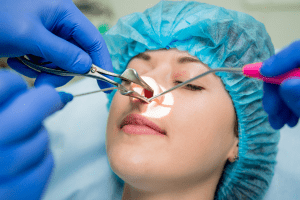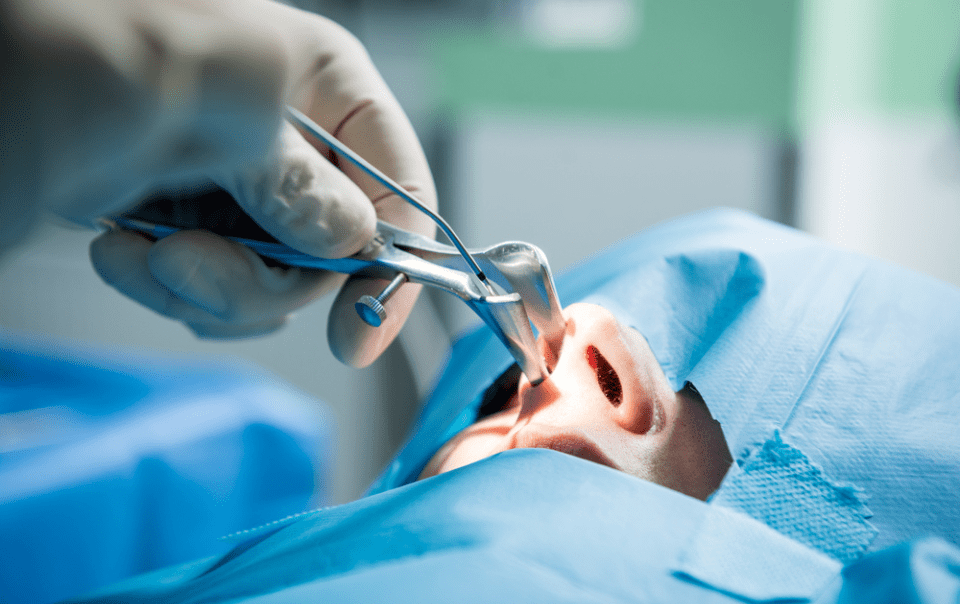Endoscopic sinus surgery (ESS) is a minimally invasive procedure that uses a small camera and surgical instruments inserted through the nostrils to open up the sinuses and remove any blockages. It is a common procedure used to treat chronic sinusitis, which is a long-term inflammation of the sinuses.
Here are some questions and answers about endoscopic sinus surgery:
What is endoscopic sinus surgery?
Endoscopic sinus surgery is a broad term for a collection of minimally invasive surgeries that use a thin, flexible tube called an endoscope to view and operate within the sinuses. These procedures are usually recommended for treating chronic sinusitis and other nasal conditions.
Here are some common types of endoscopic sinus surgery in Los Angeles:
Functional Endoscopic Sinus Surgery (FESS): This is the most common type of endoscopic sinus surgery. It aims to restore normal function to the sinuses by removing blockages and promoting proper drainage and ventilation. The surgeon uses an endoscope to visualize the sinuses and small instruments to remove polyps, scar tissue, or diseased sinus tissue.
Endoscopic Image-Guided Surgery: This type of surgery is often used for complex or revision surgeries or when the anatomy of the sinuses is distorted due to disease or previous surgeries. In image-guided surgery, the surgeon uses real-time imaging technology, often in conjunction with the endoscope, to navigate the sinuses and accurately target areas of disease.
Balloon Sinuplasty: This minimally invasive procedure uses a small, flexible balloon catheter to open up blocked sinus passages, facilitating drainage and reducing inflammation. Although it doesn’t involve tissue removal, it’s often classified under endoscopic sinus surgery because it utilizes an endoscope for visual guidance.
Endoscopic Skull Base Surgery: This type of surgery is used to remove tumors or lesions located at the base of the skull or the top of the spinal column. Using the endoscope and specialized instruments, the surgeon accesses these areas through the nasal passages and sinuses, avoiding the need for external incisions.
Sinus Tumor Removal: Endoscopic surgery can also be used to remove benign or malignant tumors within the sinuses. The specifics of the procedure will depend on the size and location of the tumor.
Each of these procedures has its own indications, benefits, and potential risks. The choice of sinus surgery in Los Angeles depends on the specifics of the patient’s condition, their overall health, and the sinus surgeon’s expertise.
What are the risks of endoscopic sinus surgery?
The risks of endoscopic sinus surgery are generally low, but they can include:
- Bleeding
- Infection
- Numbness or tingling around the nose
- Pain
- Dry socket
- Scarring
As with any surgical procedure, endoscopic sinus surgery carries risks such as infection, bleeding, or an adverse reaction to anesthesia. Rarely, complications like damage to the eyes or base of the skull can occur due to the sinuses’ close proximity to these structures.
How is ESS performed?

Is endoscopic sinus surgery in Los Angeles painful?
The surgery is performed under general anesthesia, so you won’t feel pain during the procedure. Postoperatively, you may experience some discomfort, nasal congestion, or minor bleeding, but severe pain is rare.
How long does the procedure take?
The length of the procedure varies based on the complexity of the case, but it typically lasts between 1 to 3 hours.
What is the recovery process like?
Recovery varies from person to person. Initial recovery usually takes 1-2 weeks. During this time, you may have some nasal congestion and drainage. It’s important to avoid strenuous activities, nose-blowing, and potential irritants like smoke or dust.
What is the recovery time for endoscopic sinus surgery?
The recovery time for endoscopic sinus surgery is typically about 1-2 weeks. You may experience some pain and swelling after surgery, but this should subside within a few days. You will also need to avoid strenuous activity for about 2 weeks. Most people can return to work or school within a week after surgery, but this varies based on the individual’s recovery pace and the nature of their work or activities.
What are the benefits of endoscopic sinus surgery?
The benefits of endoscopic sinus surgery include:
- Improved sinus drainage
- Reduced inflammation
- Reduced pain
- Improved sense of smell
- Improved quality of life
Will I feel any pain during the surgery?
ESS is performed under general anesthesia, so you will not feel any pain during the procedure. After the surgery, there may be some discomfort, which can usually be managed with over-the-counter pain relievers or prescribed medication.
What should I do if I have complications or concerns after the surgery?
If you have any complications or concerns after the surgery, such as excessive bleeding, severe pain, fever, or clear fluid drain from the nose, contact your healthcare provider immediately for guidance.
How successful is endoscopic sinus surgery?
Endoscopic sinus surgery has a high success rate, with many patients experiencing significant relief from their symptoms. However, success depends on various factors, including the cause of the sinus problem and the patient’s overall health.
Will endoscopic sinus surgery alter my appearance?
No, endoscopic sinus surgery is performed entirely through the nostrils, so it doesn’t result in any external incisions or changes to your appearance.
Is the surgery a permanent solution for sinusitis?
Endoscopic sinus surgery can provide long-term relief from symptoms. However, it is not a cure for sinusitis. Allergies, infections, immune system disorders, and other factors can cause sinusitis to recur.
What alternatives exist to endoscopic sinus surgery?
Medical management is usually the first line of treatment. This may include nasal sprays, antibiotics, decongestants, or corticosteroids. If these fail to alleviate symptoms, surgery may be recommended.
How do I know if endoscopic sinus surgery is right for me?
If you have chronic sinusitis or other sinus conditions not responding to medical treatment, you may be a candidate for endoscopic sinus surgery. However, the decision should be made after a thorough discussion with your healthcare provider, considering your symptoms, overall health, and personal needs.
Endoscopic sinus surgery offers significant relief for individuals suffering from chronic sinus issues. If you are considering endoscopic sinus surgery, be sure to talk to your doctor about the risks and benefits of the procedure to understand which type is most appropriate for your situation.

